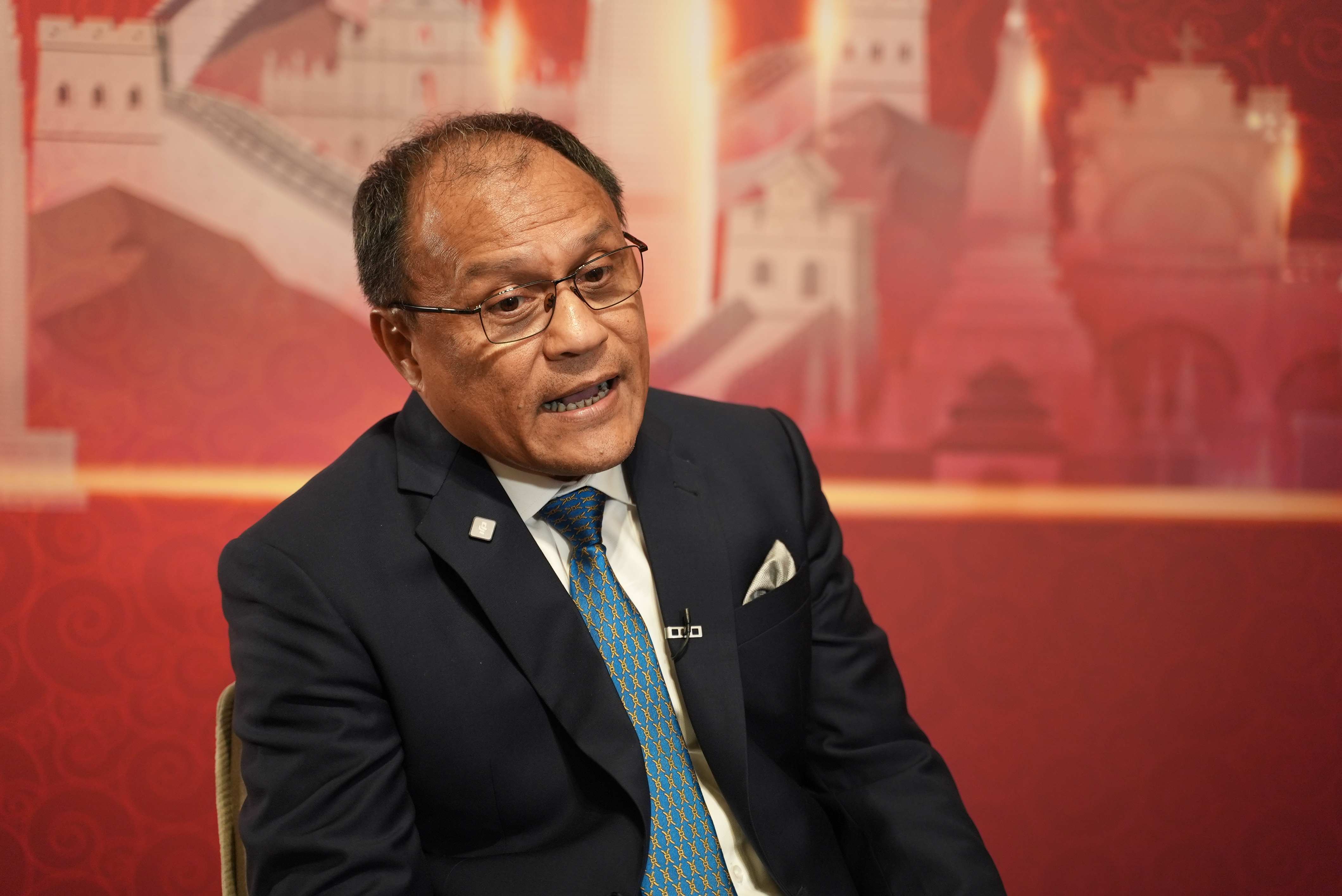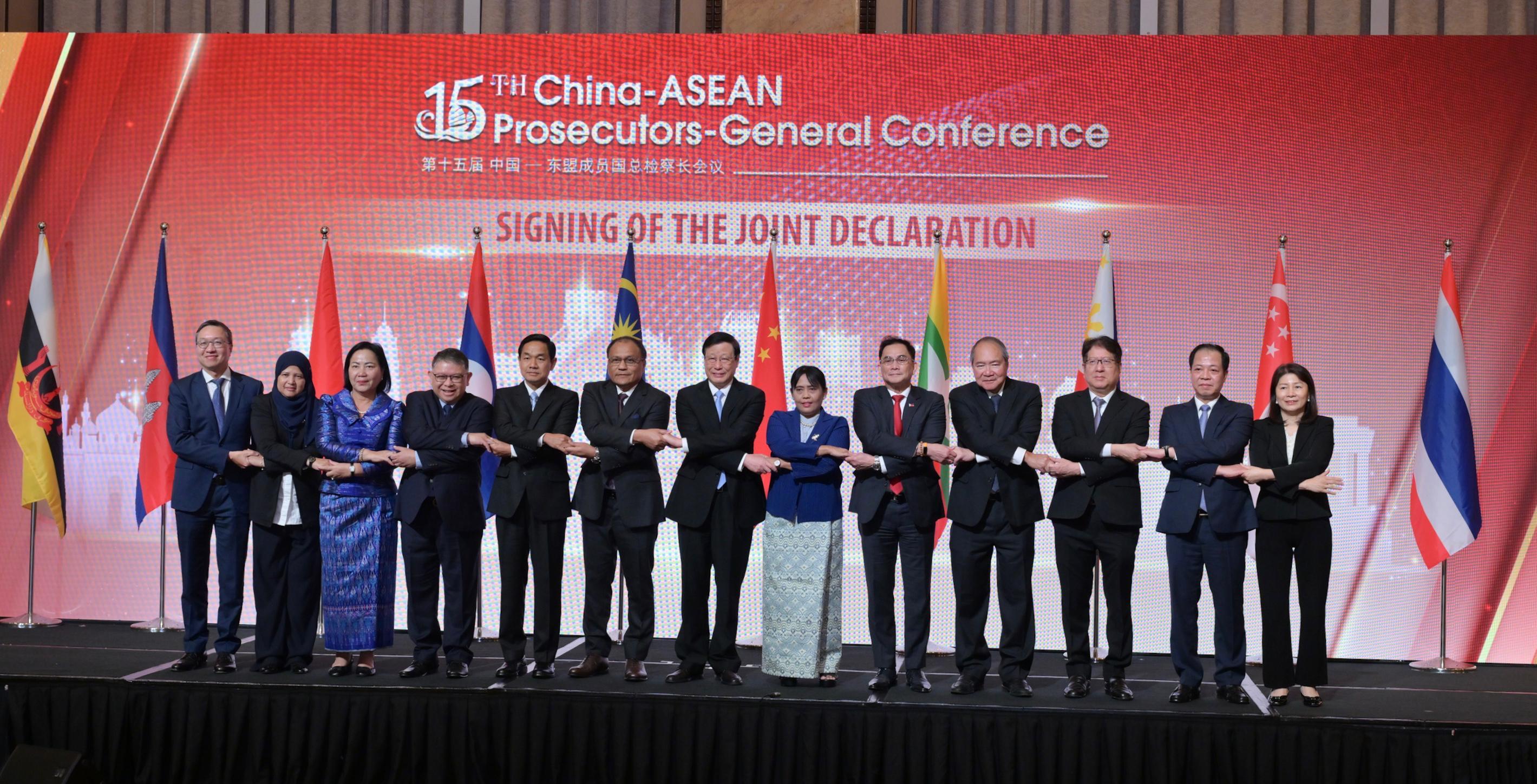Transnational efforts vital amid growing complexity of scams, Malaysian official says amid China-ASEAN forum

The increasing complexity of transnational crime in the digital age highlights the urgent need for enhanced international cooperation to ensure more effective investigations and prosecutions, said Malaysia’s top prosecutor.
“The rapid expansion of digital technology has fueled a rise in cybercrime, creating complex challenges for legal systems worldwide,” Mohd Dusuki bin Mokhtar, attorney general of Malaysia, told China Daily on the sidelines of the 15th China-ASEAN Prosecutors-General Conference.
The event, which opened in the Hong Kong Special Administrative Region on Sept 22 and runs until Sept 24, brought together the region’s top prosecutors to discuss the key topic under the theme “Combating Money Laundering and Corruption, and Recovering Assets in the Technological Age”.
READ MORE: Deeper China-Laos legal ties urged
Mohd Dusuki said there are mainly three obstacles that prosecutors face in combating transnational crime, namely jurisdictional conflicts and complexities that slow down investigations; anonymity issues, as cyber criminals use encryption and anonymity tools to make their illegal activities difficult to trace; and evidentiary hurdles since digital evidence is often fragmented, encrypted, or stored abroad.
Participating in the annual prosecutors-general conference for the second time, Mohd Dusuki said the forum stands as a pillar of cooperation that not only helps combat crime but also nurtures peace, strengthens accountability and advances the cause of justice — for China, for ASEAN and for the generations to come.
“Through this forum, the prosecutors of China and ASEAN member states have strengthened our collective fight against transnational crimes and built a trusted platform for open dialogue among our prosecutors,” said Mohd Dusuki.

ASEAN, or the Association of Southeast Asian Nations, is a regional bloc that comprises Brunei, Cambodia, Indonesia, Laos, Malaysia, Myanmar, the Philippines, Singapore, Thailand, and Vietnam. Malaysia is the ASEAN chair this year.
As one of the most notable achievements, Mohd Dusuki said more mutual legal assistance channels have been developed between China and ASEAN.
There is also growing bilateral and multilateral case coordination and an increase in regional prosecutions that target cyber-scam and telecom fraud, he said.
Furthermore, Mohd Dusuki said the joint statements and the establishment of working groups between China and ASEAN member states have also played a critical role in advancing regional prosecutorial cooperation.
READ MORE: Stepping up regional efforts to combat crimes
“These mechanisms have not only encouraged dialogue but have also contributed to norm-setting and confidence-building across jurisdictions,” he said, noting that this has laid the groundwork for more coherent and coordinated responses to transnational crime.
Noting that the surge of cyber scams in Southeast Asia poses a serious threat to regional security, Mohd Dusuki said it is important for China and ASEAN members to work jointly to tackling cyber scam operations.
According to the Malaysian official, this can be done through establishing standardized protocols for the preservation, handling, and admissibility of digital evidence, specialized training in digital forensics and investment in advanced forensic technologies, updating national legal frameworks and fostering public-private partnerships, financial integration to allow the disruption of flows that sustain scam operations, and raising cybersecurity awareness among the public.
“It is believed that through a balanced approach that aligns legal standards with technological realities, China and ASEAN can build an effective regime for combating cyber scam,” said Mohd Dusuki.
Contact the writer at kelly@chinadailyapac.com


